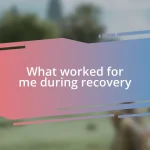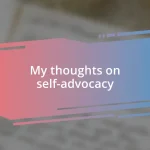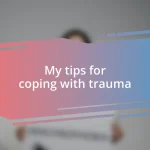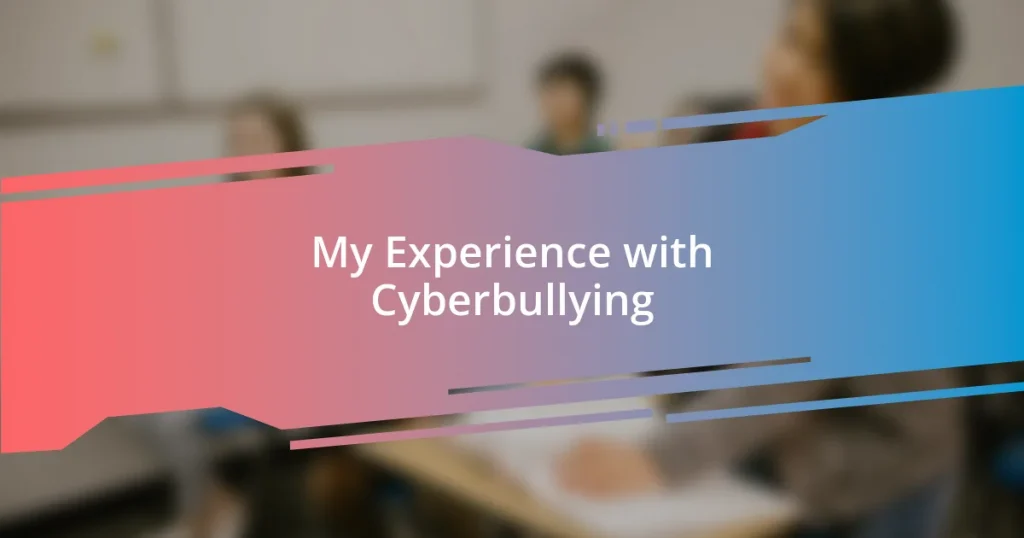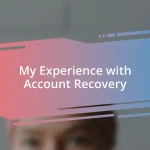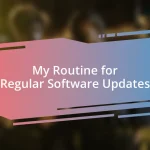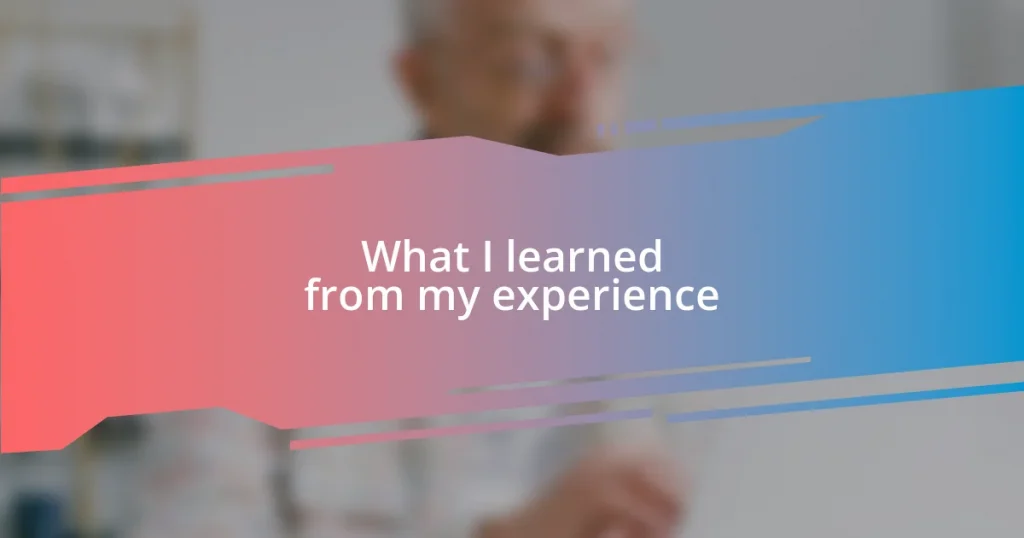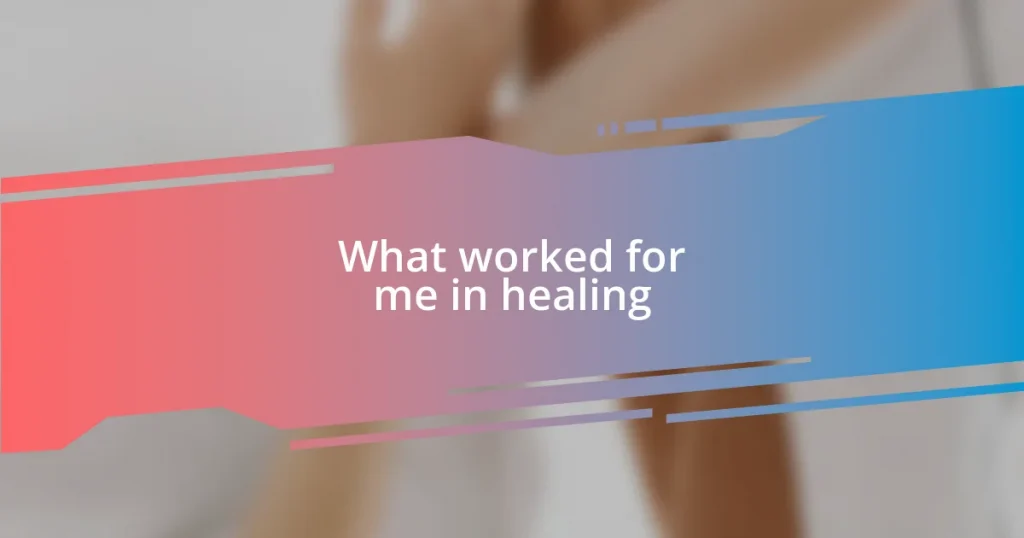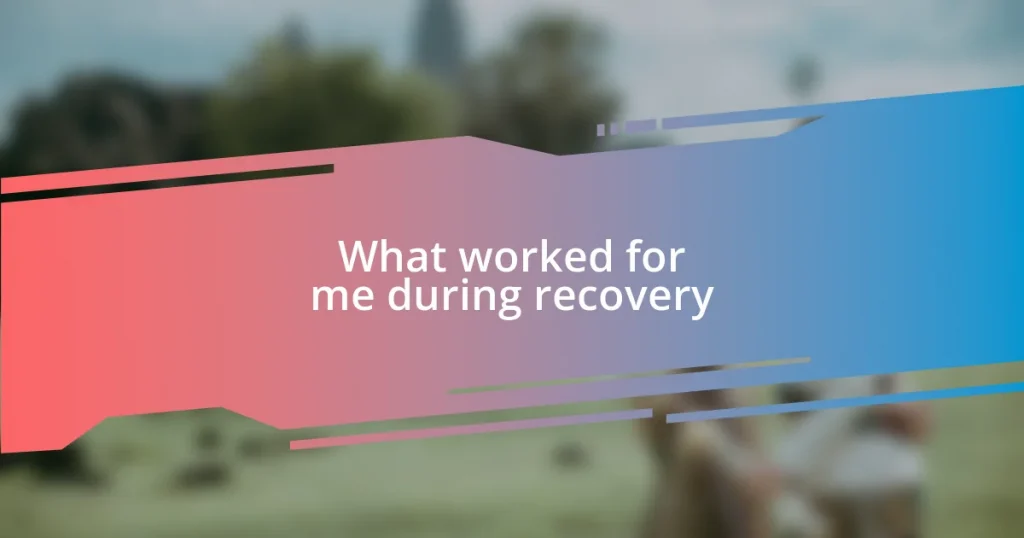Key takeaways:
- Cyberbullying has profound emotional effects, leading to anxiety, depression, and isolation, disrupting both mental health and social connections.
- Recognizing signs of cyberbullying, such as behavioral changes and physical stress symptoms, is crucial for identifying victims who may need support.
- Effective coping strategies include seeking support from friends, documenting experiences, engaging in joyful activities, and reporting incidents to trusted adults and authorities.
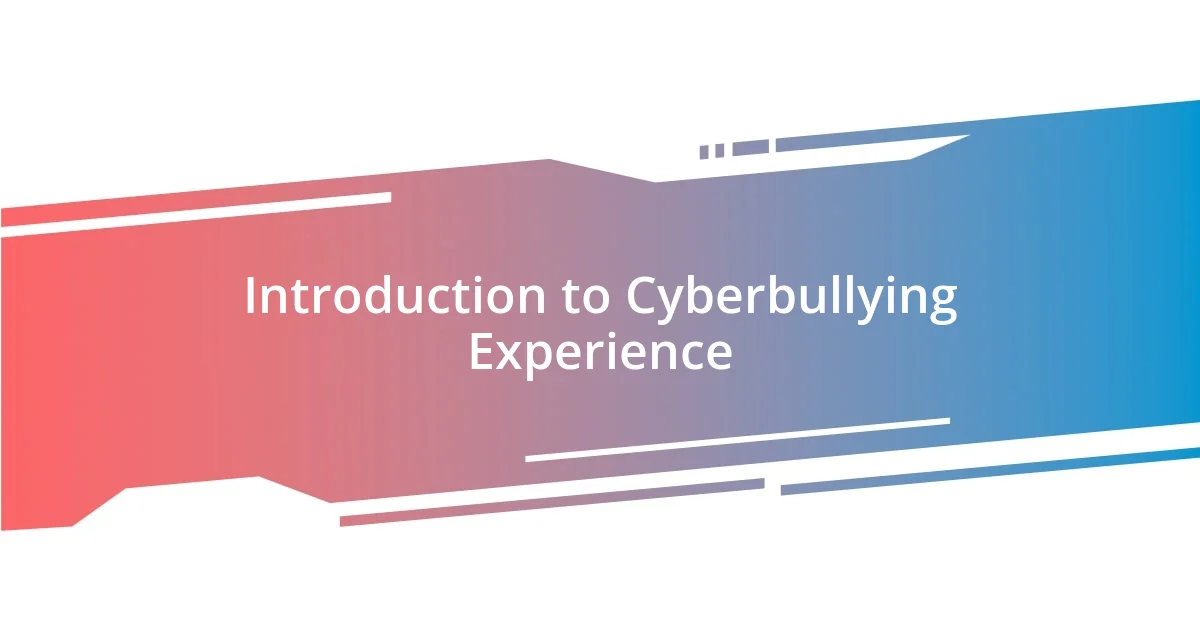
Introduction to Cyberbullying Experience
Cyberbullying, in my experience, feels like a punch in the gut—one that often comes from people you thought were friends. I remember a time when I received hurtful messages over social media, ones that pierced through my sense of self-worth like an arrow. It’s alarming how a few cruel words can distort your reality and leave you questioning your place in a community.
Reflecting on those moments, I often wonder: why is it so easy for some individuals to hide behind screens and lash out? The anonymity offered by the internet can create an illusion of safety for the bully, while simultaneously plunging the victim into a spiral of anxiety and self-doubt. When I faced this kind of harassment, it felt isolating, as if the digital world turned against me, leaving me searching for understanding in an atmosphere of cruelty.
The emotional toll of cyberbullying is profound—it can lead to feelings of helplessness that seem insurmountable. I found solace in sharing my experience with close friends, but I still remember the lingering embarrassment and fear of judgment. Through my journey, I’ve learned that discussing these incidents openly can not only empower others but also foster a sense of community among those who have suffered similarly.
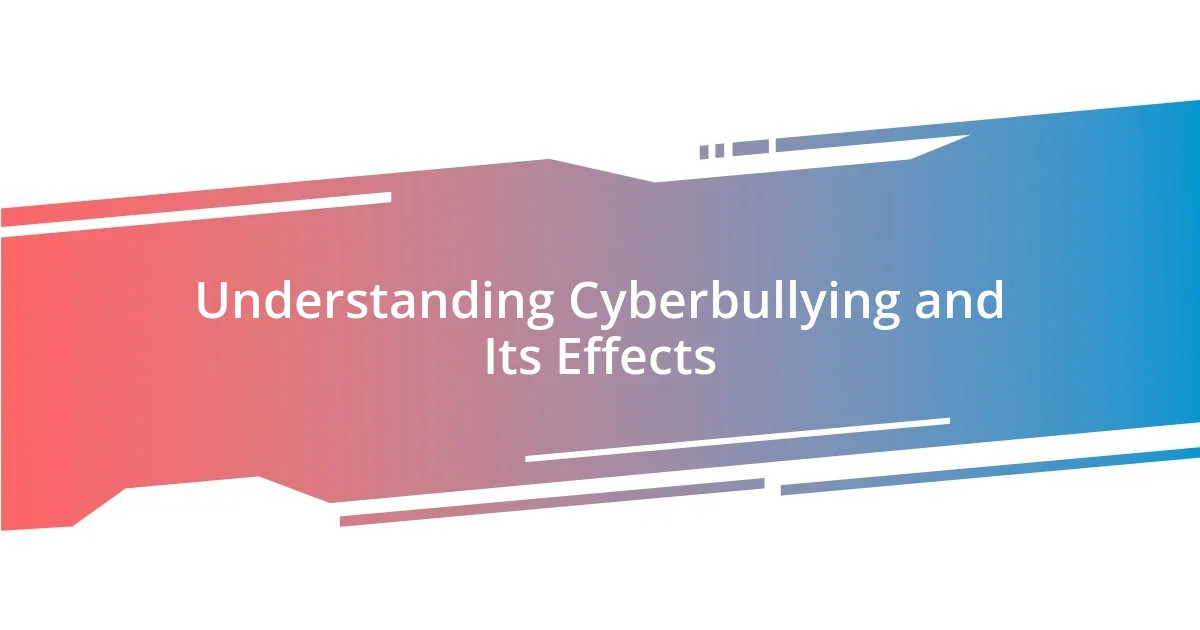
Understanding Cyberbullying and Its Effects
Understanding the ins and outs of cyberbullying truly opens your eyes to its debilitating effects. In my experience, the emotional aftermath isn’t just about feeling hurt; it’s an intricate web of anxiety, depression, and isolation. I recall sitting in my room, the weight of the insults echoing through my mind, seeing no refuge from the digital onslaught. What’s particularly distressing is how it can seep into every aspect of life. It’s as if the online presence of negativity hijacks your overall sense of happiness.
Here are some effects I’ve observed that can stem from cyberbullying:
- Persistent anxiety and fear regarding online interactions
- Deteriorating self-esteem and self-worth over time
- Increased feelings of loneliness, often exacerbated by the constant connectivity of social media
- Academic and work-related struggles due to distraction and emotional distress
- A heightened risk of mental health issues like depression or suicidal thoughts
Reflecting on these points, I realize how essential it is to openly discuss these challenges. That openness can pave the way for healing and connection.
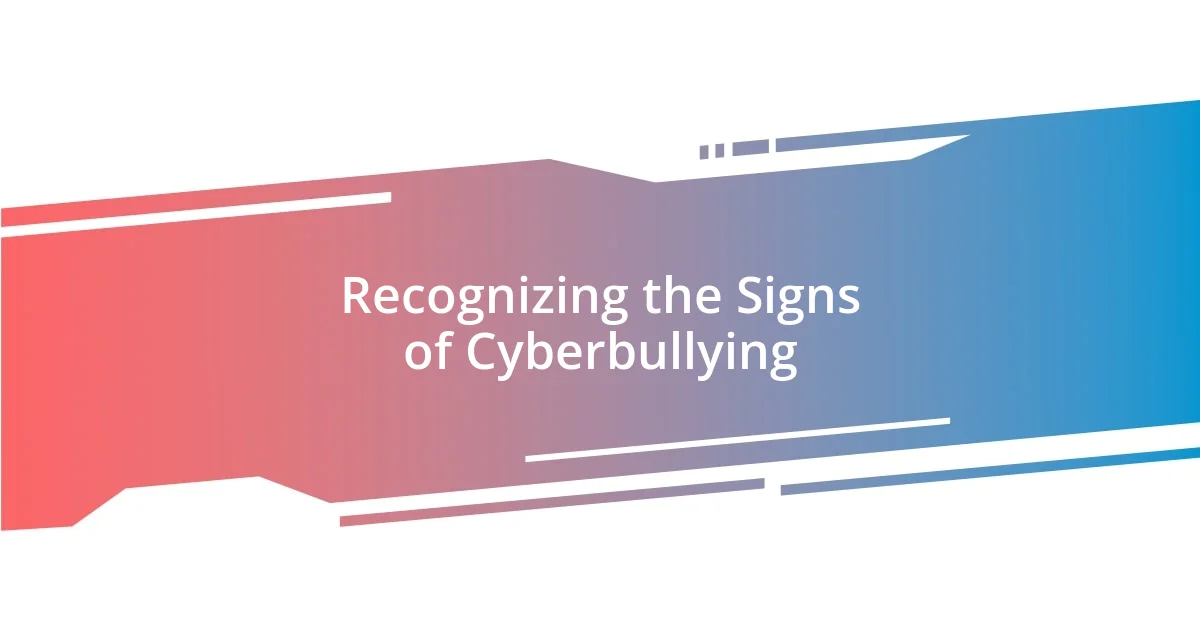
Recognizing the Signs of Cyberbullying
Recognizing the signs of cyberbullying requires a keen sense of observation. Often, it manifests through sudden changes in behavior or mood, especially when it comes to online interactions. For instance, I noticed that a friend of mine started withdrawing from our group chats and appeared anxious whenever their phone buzzed. That hesitation signaled something deeper—fear of what awaited them online.
Another clear indicator is the emergence of anxiety related to digital communication. I’ve experienced moments where I found myself dreading the thought of opening social media, fearing another wave of hurtful comments or mocking memes. This palpable tension often wreaks havoc on a person’s emotional state, leading to sleepless nights and constant worry. If you notice someone exhibiting these fearful tendencies, it might be a call for help.
Lastly, I believe the physical signs of stress shouldn’t be overlooked. Cyberbullying can lead to significant health issues, like headaches or stomach pains, stemming from the emotional distress of online harassment. I once dealt with stomachaches that seemed to coincide with the arrival of school emails or notifications. Those symptoms were a signal for me that something was seriously amiss, reminding me how abuse in the digital realm can manifest in various ways.
| Signs of Cyberbullying | Description |
|---|---|
| Behavioral Changes | Withdrawal from social interactions; increased anxiety when online. |
| Anxiety about Online Communication | Dread or fear related to receiving messages or notifications. |
| Physical Symptoms of Stress | Unexplained headaches or stomach pains linked to online interactions. |
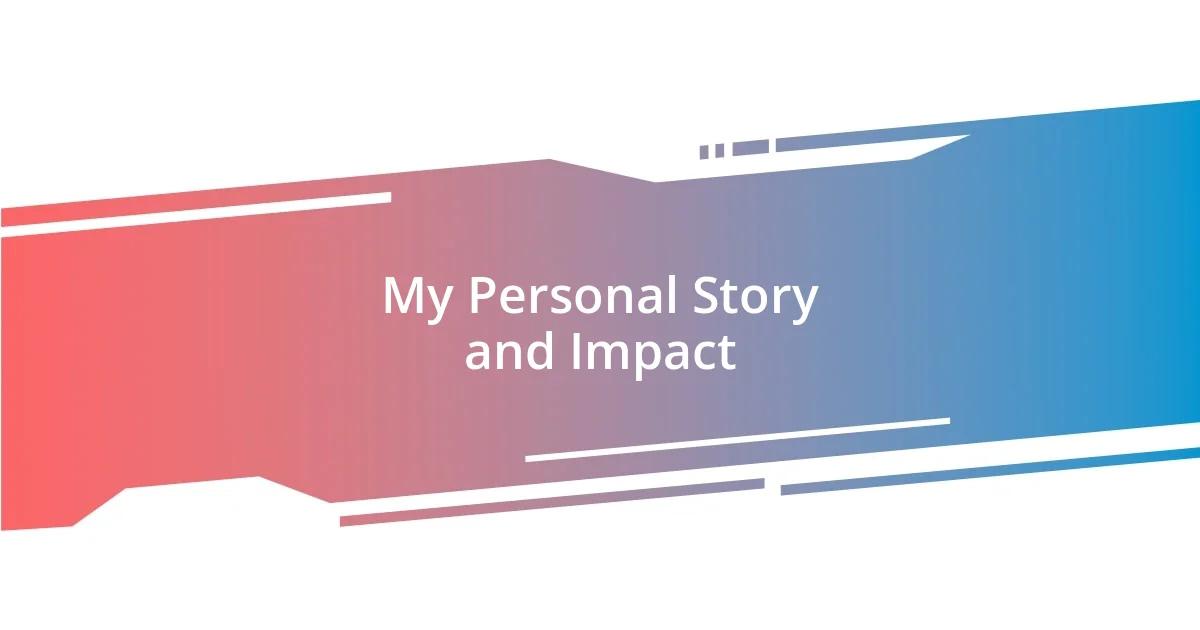
My Personal Story and Impact
I still vividly remember the day when the cruel comments flooded my notifications after a seemingly harmless post. At first, I laughed it off, brushing aside the sting of words as just “online drama.” But as the days wore on, those words morphed into an incessant echo in my mind, creating a relentless cycle of self-doubt and sadness. Isn’t it fascinating how a few keystrokes can alter your perception of self-worth?
One particularly isolating night stands out; I chose to scroll through my feed only to be met with yet another mocking meme that cut deep. It dawned on me then—this relentless torment was not just affecting my mental state but seeping into my relationships. My friends noticed my reluctance to join social gatherings, and I saw the worry in their eyes. How could I explain that part of me felt unworthy of joy, trapped in a maze of negative self-talk?
Reflecting on this experience, I’ve come to realize that the impact of cyberbullying reaches far beyond the screen. It infiltrates personal spaces and emotions, creating fissures in our well-being. During that challenging period, my passion for hobbies waned; I found myself choosing silence over creativity. Why is it that the negativity of strangers can overshadow the positivity of loved ones? It’s a heartbreaking mystery, but I’ve learned it takes time to reclaim joy and self-love after such experiences.
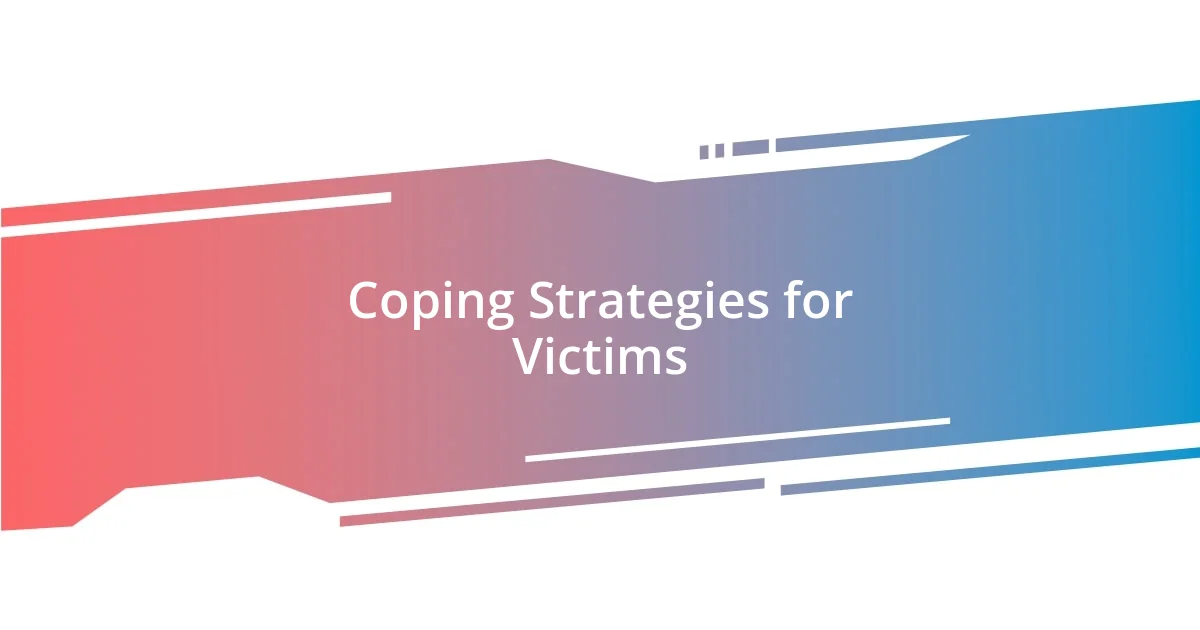
Coping Strategies for Victims
When faced with the harsh realities of cyberbullying, one effective coping strategy I found invaluable was connecting with supportive friends and family. I remember reaching out to a close friend during my darkest days; just sharing what I was going through felt like shedding a heavy weight. The emotional support I received reminded me that I wasn’t alone in this struggle and provided a much-needed perspective.
Another strategy that worked for me was documenting my experiences in a journal. Writing became a therapeutic outlet where I could pour my feelings onto the page, turning chaos into clarity. I would often go back and read what I had written, realizing how my thoughts shifted over time. Wasn’t it empowering to witness my own resilience grow through the words I penned? It showed me that while I couldn’t control the actions of others, I could certainly control how I responded to them.
Lastly, I found that engaging in activities that brought me joy was crucial for regaining a sense of normalcy. Whether it was painting, reading, or taking long walks in nature, those moments helped me reconnect with the parts of myself that bullying tried to overshadow. How amazing is it to discover that joy can exist alongside pain? Embracing those moments of happiness helped me reaffirm my value beyond the hurtful words.
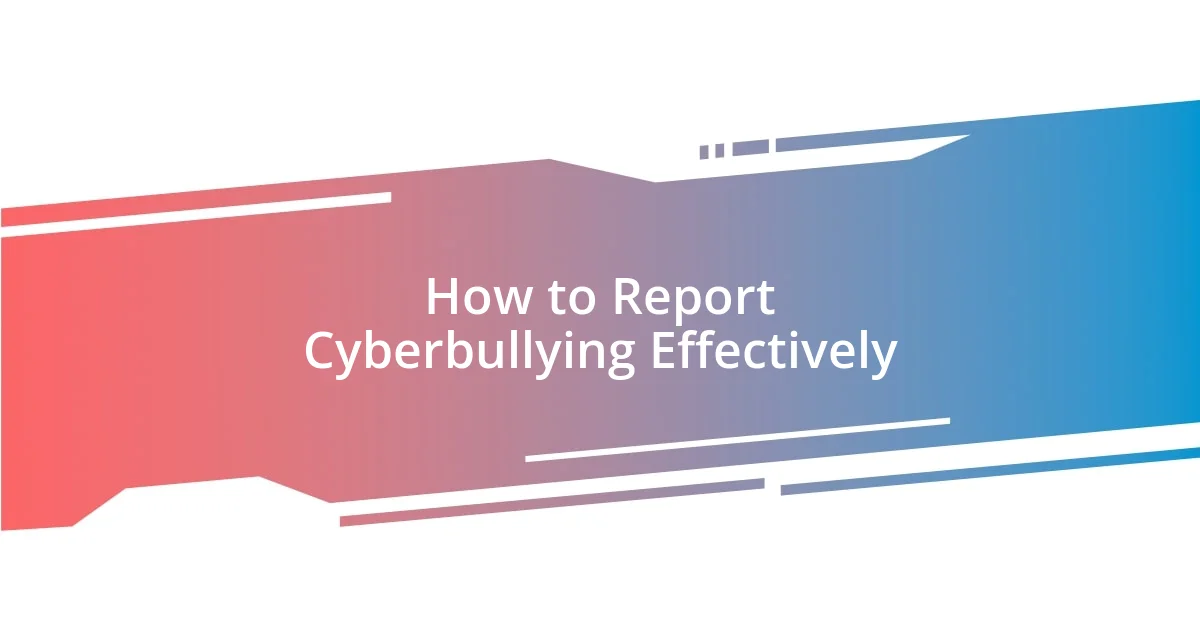
How to Report Cyberbullying Effectively
When it comes to reporting cyberbullying, the first step I discovered is to gather evidence. I remember screenshotting hurtful comments and saving any direct messages that made me uncomfortable. Having this documentation not only strengthens your report but also helps in clarifying your experience when explaining it to others. What if this proof can turn the tide of the situation? It often does.
Next, understanding where to report these incidents is crucial. Familiarizing yourself with the policies of the platform where the bullying occurred can streamline the process. For instance, on social media platforms, there are usually dedicated reporting features. When I reported an incident, I felt empowered knowing I was taking action, and it gave me a sense of control back in a chaotic situation. Have you ever felt that wave of relief that comes from asserting your voice, even in the face of adversity?
Lastly, don’t underestimate the power of informing trusted adults or authorities. When I shared my experience with a teacher, their support not only validated my feelings but also prompted them to take further action. This reinforced the idea that reaching out isn’t a sign of weakness, but a courageous step towards recovery and resolution. Isn’t it comforting to know that you don’t have to navigate this battle alone? Having allies really makes a difference.
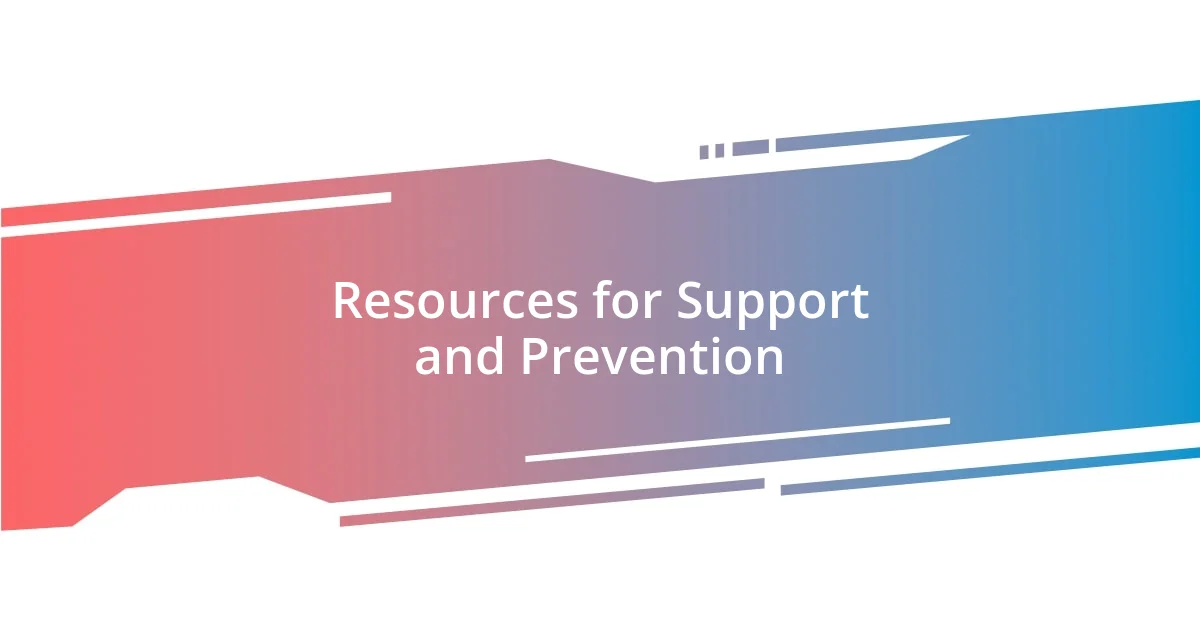
Resources for Support and Prevention
Finding resources for support and prevention during my experience with cyberbullying was a game changer. I stumbled upon online support groups filled with individuals who shared similar stories. The first time I engaged in one of those discussions, I felt a sense of relief wash over me. It was almost surreal to connect with people who truly understood what I was going through. Have you ever felt that instant bond with strangers over shared pain? It’s a reminder that we’re not alone in this journey.
Beyond peer support, I also sought guidance from hotlines dedicated to bullying prevention. I remember calling one out of sheer desperation, and the compassionate voice on the other end made me feel heard. They not only provided practical advice but also helped me navigate my feelings. It’s incredible how simply vocalizing your struggles can lead to clarity, don’t you think? Sometimes all it takes is one conversation to spark a new course of action and hope.
Additionally, I found great value in educational websites and resources aimed at preventing cyberbullying in the first place. These platforms offered helpful tips for dealing with bullies and advice for parents on how to protect their children online. When I read these articles, it struck me how empowering knowledge can be. It’s as if each piece of advice became a stepping stone toward reclaiming my own narrative. Isn’t it reassuring to equip ourselves with the tools to not only fight back but to also prevent such situations for others? That sense of agency was essential for my healing process.


